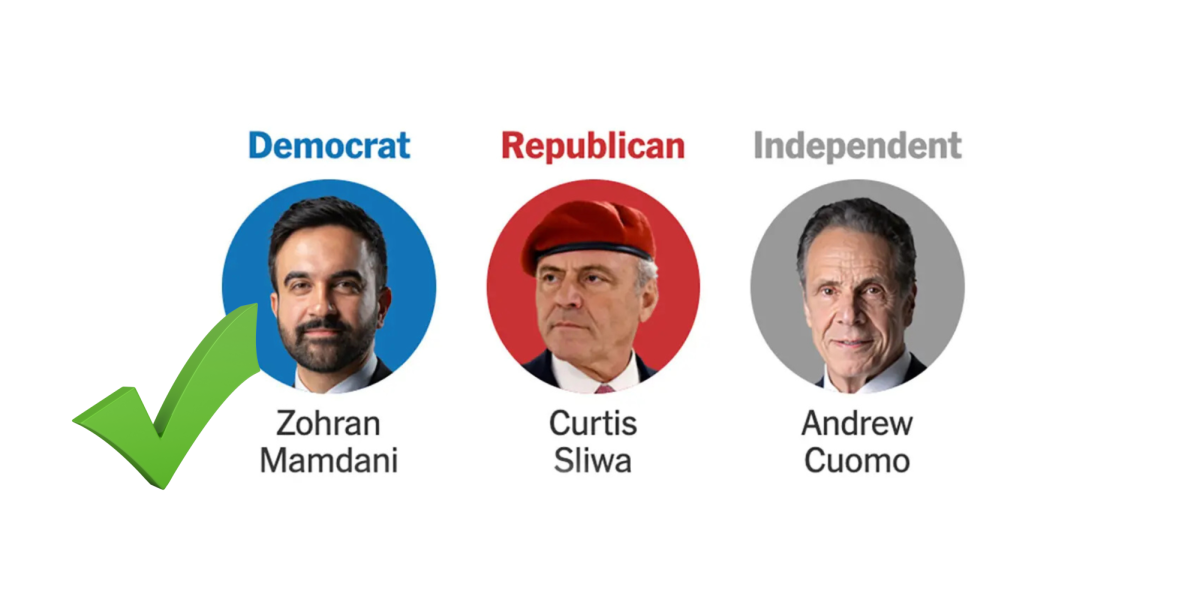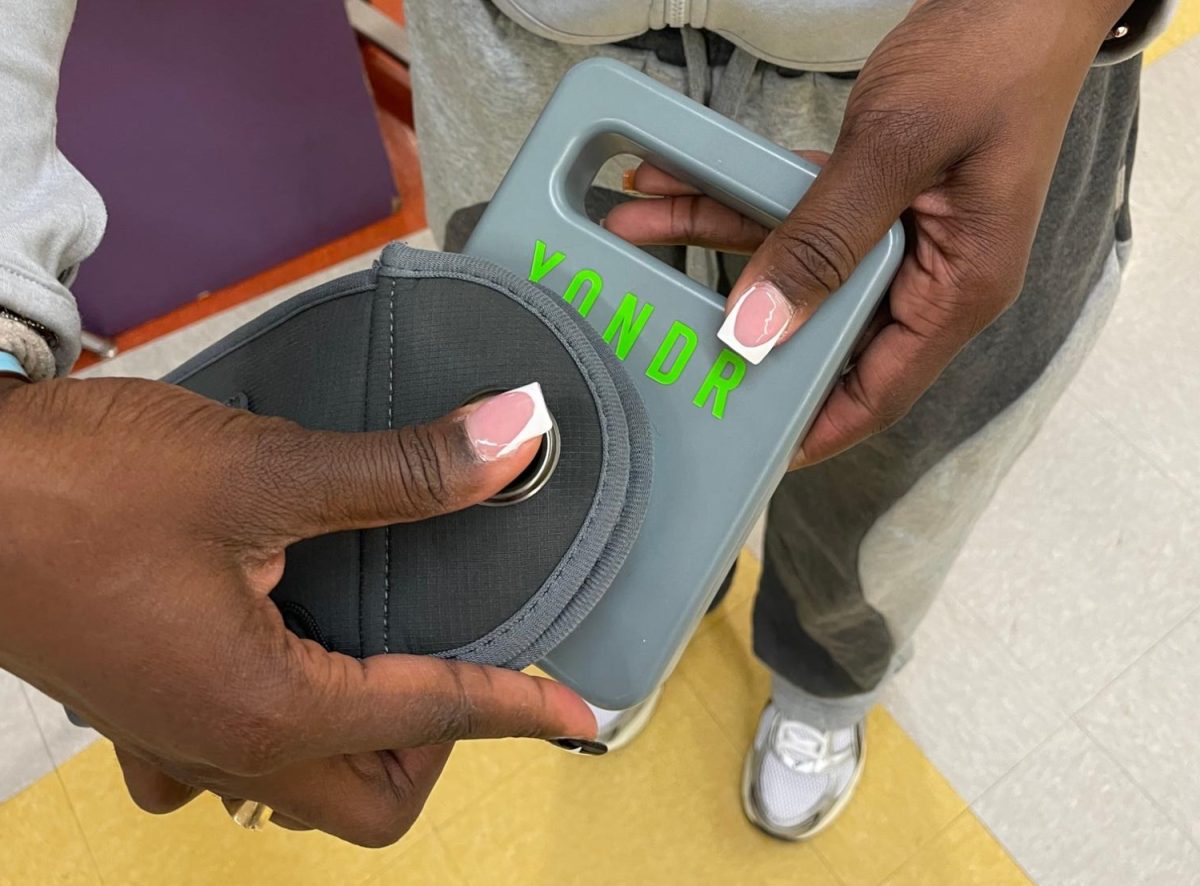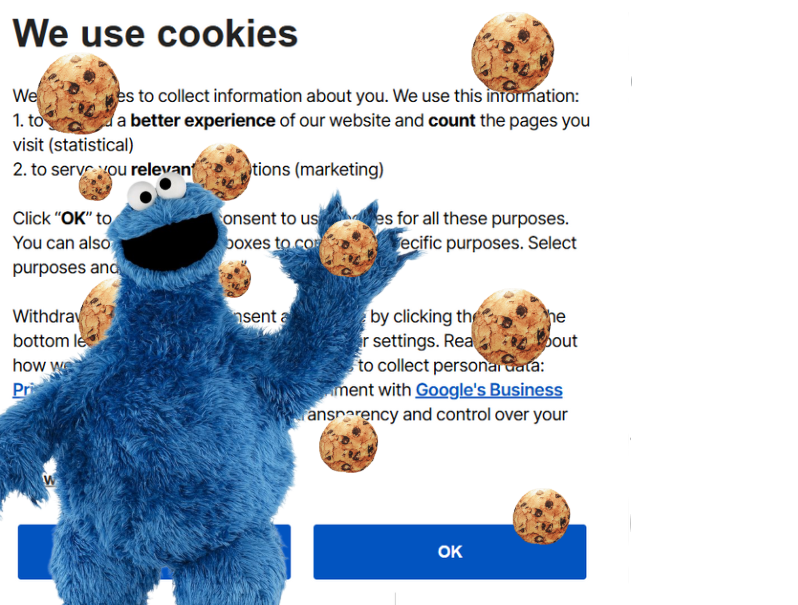‘Accept cookies?’
Whenever you open a website or an app you’re greeted with a familiar phrase “Accept cookies?” most people will see this message, click accept and continue to browse the website but what does the term ‘cookies’ actually mean? Cookies are an effective way for companies to generalize and diminish the data they collect from you. By referring to large data collection as cookies companies companies are able to avoid directly telling consumers just how much of their data the company collects and what they do with it, of course the website has their privacy policy as a small side button next to the giant blatant “ACCEPT” button but let’s be honest when was the last time you fully read a website’s or app’s privacy policy?
Types of cookies
Not every cookie is made the same and when you accept cookies you should know that you can customize what kind of cookies/data you are giving. There are mainly 3 types of cookies; Essential cookies, First-party cookies, and Third-party cookies, knowing the difference between these 3 cookies is essential to protect your data. Essential cookies are the data a website collects in order for the app or website to properly function. Think of how PlayStation stores your account data so it can properly track the games and licenses that you own so you can play them. First-party cookies give the website better function and are often used to log a user’s shopping cart, login information, credit card information and so on. The data is collected by the website’s domain, giving the user more control over their own data. First-party cookies can be avoided though the website or app will not run as smoothly. Third-party cookies are from outside of the website’s domain, they’re used to monetize and advertise the website; these cookies can often be declined without it having any significant effect on how the app or the website runs.
Addressing the giant cookie
I’ll start by addressing the elephant, or in this case the giant cookie in the room; ‘Why shouldn’t I always accept cookies?’. If you value your data and online anonymity it is important to understand that when you accept cookies for a website the website will begin to skim through all of your data which includes but is not limited to; your current location, your installed apps, your text messages, your liked tiktoks, your online shopping carts, your contacts, and your browser history. The sheer amount of data you forfeit when you click accept is staggering, right? Once you click accept your data is stored by the website unless you go through a lengthy process to request to have your data removed, that data will remain there for the website or app to use or sell to advertisers. When you forfeit your data by accepting cookies you are giving that site the legal ability to sell your data to whoever is interested in it.
The cookie jar is breached
Data leaks and breaches are the main issue with freely lending your data to websites and apps. When a data breach occurs on a website either through a simple mistake or a coordinated attack a large amount of the data from the website becomes available to people who normally would not have access to your data. These individuals, when given unrestricted access to your data will illegally sell it or use it to make money off you by selling your phone number data or Gmail data to send you scams or spam. The reason why this is illegal is because you gave permission specifically to the website that requested the cookies, not to the third party who got access to your cookies through the data breach.
How to protect your cookies
The best way to avoid a data breach is to avoid accepting cookies on sites that you will not use again. By minimizing the amount of cookies you are giving sites you reduce the risk of your data being stolen but it’s also important to know whether or not a site can be trusted with your cookies, if a site seems untrustworthy or sketchy do not give them your cookies. If you are not comfortable with websites and companies selling your information do not accept cookies it will give them complete legal ability to do so, hold onto your cookie jar. If you regret accepting cookies you can clear cookies using your browser settings but some apps and websites may require you to undergo a more complicated process.

























